Specialized Care
The doctors at Burr Ridge Veterinary Clinic have a special interest and expertise in cardiology, dermatology, and oncology and can perform many diagnostic services related to these areas. We partner with board-certified veterinary specialists to whom we can refer you and your canine or feline family member when complex medical issues merit additional attention. And, when 24-hour attention is needed, we’ll recommend an emergency clinic that can provide round-the-clock veterinary care. Finally, veterinary care team members are trained to administer therapeutic laser to treat patient injuries, help surgical incisions heal more quickly, reduce pain, and improve patient mobility.
Cardiology
Recognizing signs of heart disease before they become serious help give your pet a better chance at a good quality of life. In addition to listening to your animal companion’s heart with a stethoscope, we use cardiac-related diagnostic equipment to assess and document heart health including Doppler ultrasonography, an electrocardiogram, and an echocardiogram. And, when continuous cardiac monitoring is needed, we’ll send your pet home fitted with a Holter monitor. Our Doppler blood pressure monitor uses ultrasound waves to detect blood flow in a peripheral artery which can be heard via the probe and a speaker. Just like in humans, a blood pressure cuff is attached to a front limb and inflated until arterial blood flow is occluded. The cuff is then slowly deflated and the pressure is recorded when the first audible arterial pulse is heard. Typically, three measurements are recorded so the doctor can determine an average systolic arterial pressure.
An electrocardiogram (ECG) records fluctuations in electrical currents running through the heart and may show any abnormalities in the heart’s rate or rhythm. An ECG collects and records these fluctuations using special non-pinching clips attached for 30-45 seconds to each of Fluffy or Fido’s four limbs. A printed report is generated which our doctor will review to determine if the heart is functioning normally or if there are cardiac arrhythmias (irregular or abnormal heart rhythms). When necessary, we can send this report electronically to a board-certified cardiologist who will review the information and recommend treatment options and/or medications.
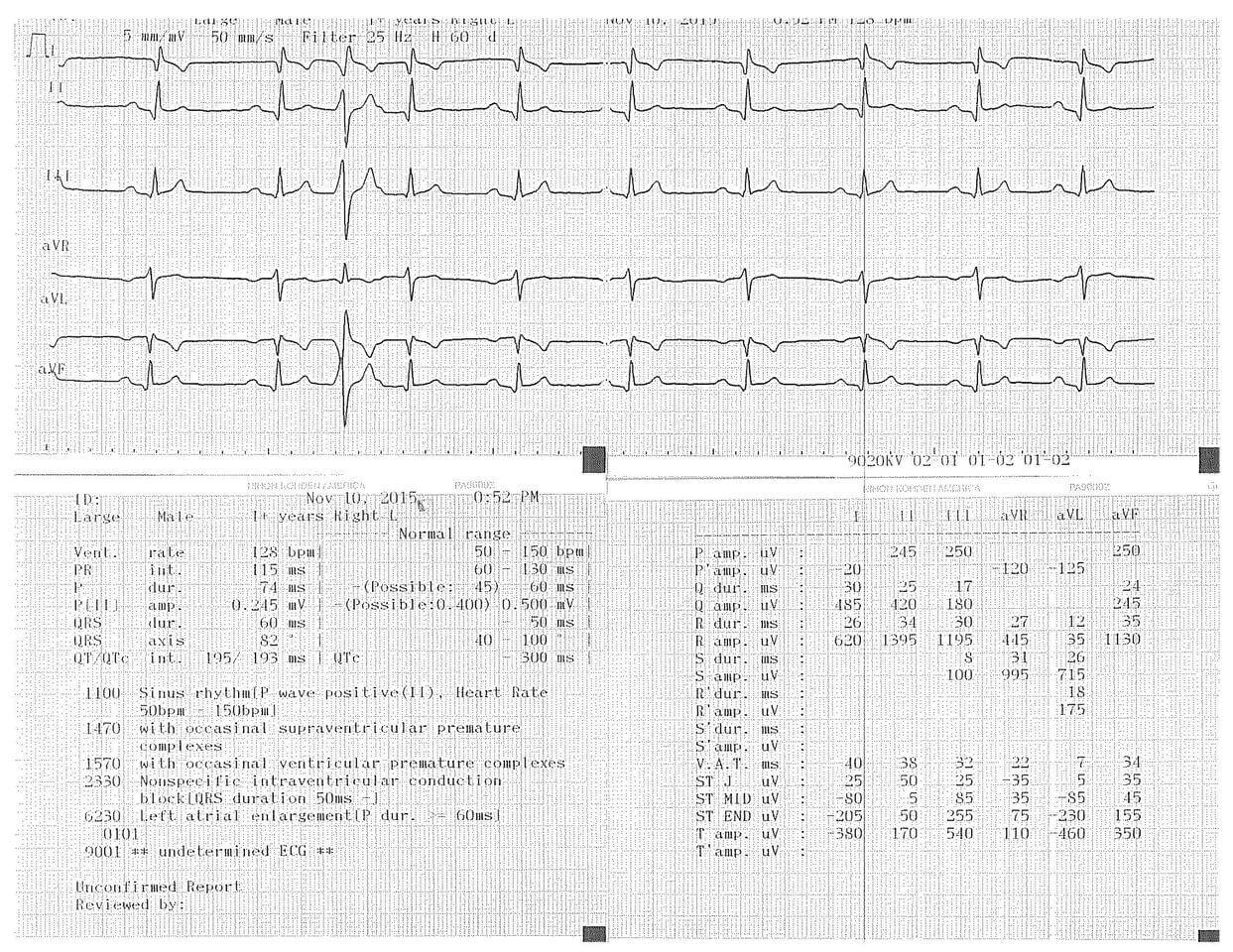
An echocardiogram, also called a cardiac ultrasound, is a sonogram of the heart that is painless and non-invasive. Ultrasound technology uses sound waves produced by a transducer located inside a probe that is gently pressed against the patient’s skin. These sound waves travel through the body and are reflected in different layers of body tissues which produce images on the ultrasound screen. This procedure allows our doctors to visualize the heart, its structure, and physical condition, as well as blood flow. It can determine heart shape and size and the thickness of heart walls, pumping capacity of the heart and blood flow patterns, and possible abnormalities of heart valves and the pericardium (the sac surrounding the heart). This series of digital images are permanently saved and linked to your pet’s computer record and can be transmitted electronically to a board-certified radiologist or local referral specialist for further review.
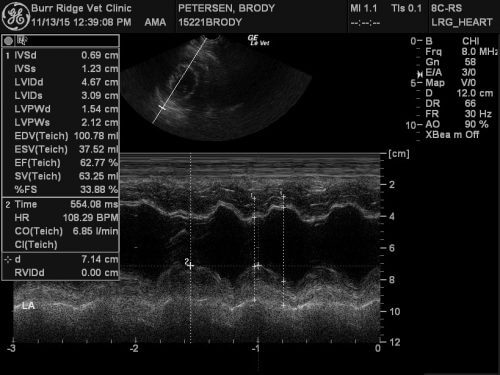
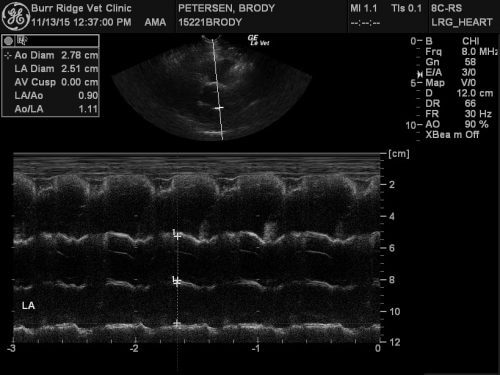
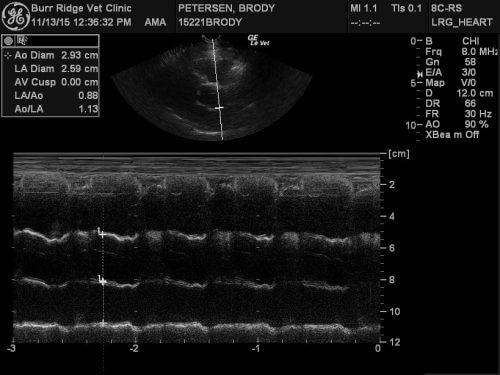
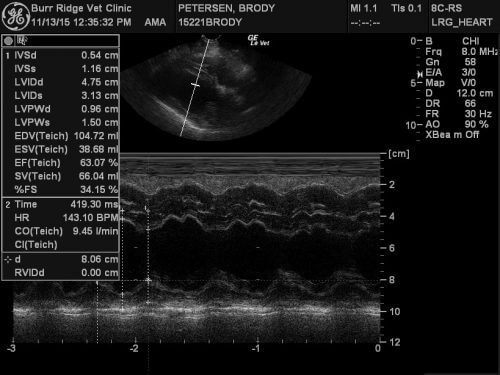
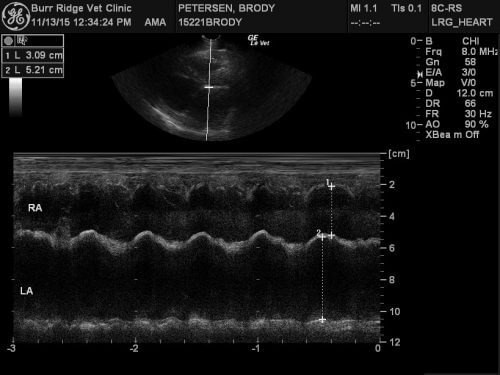
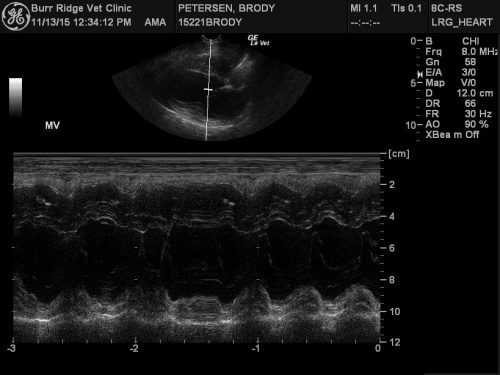
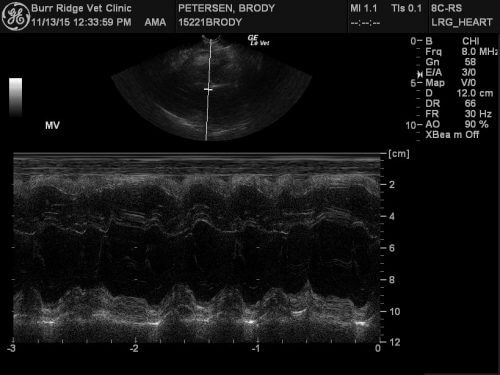
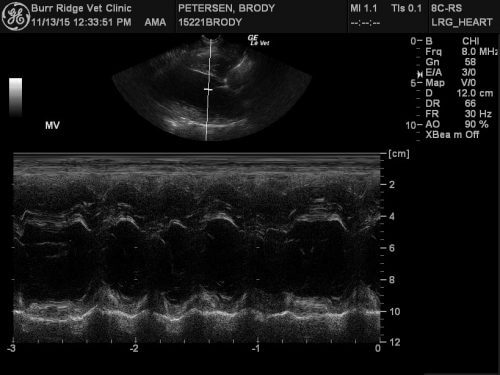
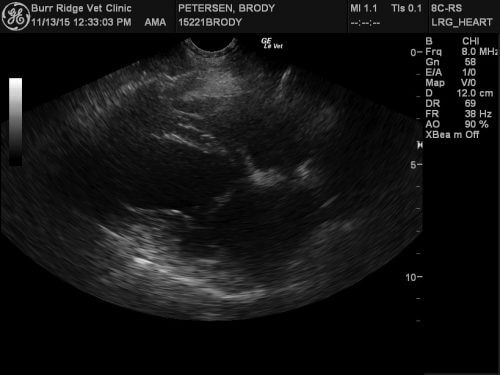
If one of our doctors decides a continuous record of your pet’s heart rhythms is needed, he or she may recommend the use of a Holter monitor. A Holter monitor is a battery-operated portable digital device that continuously measures and records heart activity, typically for 24 to 48 hours. The monitor fits into the pocket of a vest that is temporarily wrapped around your pet and connected to small electrodes that attach painlessly to the skin. Once the Holter monitor is returned to the clinic, the continuous recording can be uploaded and viewed by a board-certified cardiologist. The cardiologist can then determine if arrhythmias are occurring on an ongoing basis, the heart is getting enough oxygen to meet its needs, medication is needed, or any medications being given are working. Our doctors will share this information and any recommendations with you once the cardiologist’s report is received.
